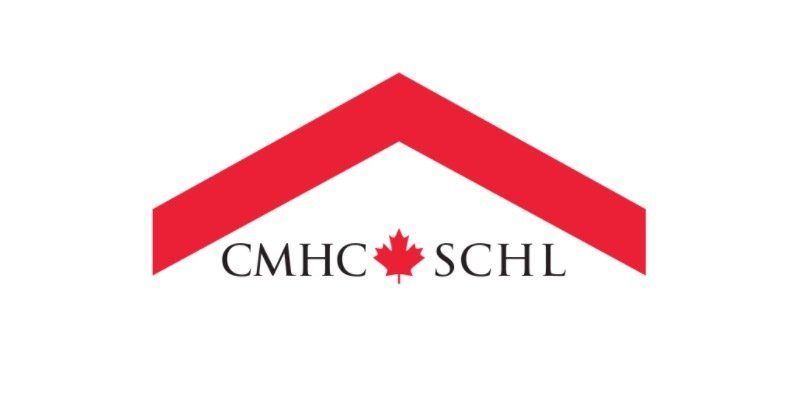Blog Layout
CMHC Guidelines Changing July 1st 2020
Joe Tomkins • June 5, 2020

CMHC just shared the following press release. If you have any questions, please don’t hesitate to contact me anytime!
CMHC RELEASE JUNE 4th 2020
The COVID-19 pandemic is affecting all sectors of Canada’s economy, including housing. Job losses, business closures and a drop in immigration are adversely impacting Canada’s housing markets, and CMHC foresees a 9% to 18% decrease in house prices over the next 12 months. In order to protect future home buyers and reduce risk, CMHC is changing its underwriting policies for insured mortgages.
Effective July 1, the following changes will apply for new applications for homeowner transactional and portfolio mortgage insurance:
- Limiting the Gross/Total Debt Servicing (GDS/TDS) ratios to our standard requirements of 35/42;
- Establish minimum credit score of 680 for at least one borrower; and
- Non-traditional sources of down payment that increase indebtedness will no longer be treated as equity for insurance purposes.
To further manage the risk to our insurance business, and ultimately taxpayers, during this uncertain time, we have also suspended refinancing for multi-unit mortgage insurance except when the funds are used for repairs or reinvestment in housing. Consultations have begun on the repositioning of our multi-unit mortgage insurance products.
“COVID-19 has exposed long-standing vulnerabilities in our financial markets, and we must act now to protect the economic futures of Canadians,” said Evan Siddall, CMHC’s President and CEO. “These actions will protect home buyers, reduce government and taxpayer risk and support the stability of housing markets while curtailing excessive demand and unsustainable house price growth.”
These decisions are within CMHC’s authorities under the National Housing Act and are in anticipation of potential house price adjustment. We will continue to monitor market conditions and work with our federal colleagues on potential macro-prudential policy options.
CMHC supports the housing market and financial system stability by providing support for Canadians in housing need, and by offering housing research and advice to all levels of Canadian government, consumers and the housing industry.

By Joe Tomkins
•
February 20, 2025
When arranging mortgage financing, your mortgage lender will register your mortgage in one of two ways. Either with a standard charge mortgage or a collateral charge mortgage. Let’s look at the differences between the two. Standard charge mortgage This is your good old-fashioned mortgage. A standard charge mortgage is the mortgage you most likely think about when you consider mortgage financing. Here, the amount you borrow from the lender is the amount that is registered against the title to protect the lender if you default on your mortgage. When your mortgage term is up, you can either renew your existing mortgage or, if it makes more financial sense, you can switch your mortgage to another lender. As long as you aren’t changing any of the fine print, the new lender will usually cover the cost of the switch. A standard charge mortgage has set terms and is non-advanceable. This means that if you need to borrow more money, you'll need to reapply and requalify for a new mortgage. So there will be costs associated with breaking your existing mortgage and costs to register a new one. Collateral charge mortgage A collateral charge mortgage is a mortgage that can have multiple parts, usually with a re-advanceable component. It can include many different financing options like a personal loan or line of credit. Your mortgage is registered against the title in a way that should you need to borrow more money down the line; you can do so fairly easily. A home equity line of credit is a good example of a collateral charge mortgage. Unlike a standard charge mortgage, here, your lender will register a higher amount than what you actually borrow. This could be for the property's full value, or some lenders will go up to 125% of your property's value. In the future, if the value of your property appreciates, with a collateral charge mortgage, you don't have to rewrite your existing mortgage to borrow more money (assuming you qualify). This will save you from any costs associated with breaking your existing mortgage and registering a new one. However, if you’re looking to switch your mortgage to another lender at the end of your term, you might be forced to discharge your mortgage and incur legal fees. Also, by registering your mortgage with a collateral charge, you potentially limit your ability to secure a second mortgage. So what’s a better option for you? Well, there are benefits and drawbacks to both. Finding the best option for you really depends on your financial situation and what you believe gives you the most flexibility. This is probably a question better handled in a conversation rather than in an article. With that said, undoubtedly, the best option is to work with an independent mortgage professional. It’s our job to understand the intricacies of mortgage financing, listen to and assess your needs, and recommend the best mortgage to meet your needs. As we work with many lenders, we can provide you with options. Don’t get stuck dealing with a single institution that may only offer you a collateral charge mortgage when what you need is a standard charge mortgage. So if you’d like to have a conversation about mortgage financing, please get in touch. It would be a pleasure to work with you and answer any questions you might have.

By Joe Tomkins
•
February 6, 2025
You’d think an online calculator is a pretty straightforward device, one that you should be able to place your confidence in, and for the most part, they are. Calculators calculate numbers. The numbers are reliable, but how you interpret those numbers, not so much, especially if the goal is mortgage qualification. If you rely on the numbers from a “What can I afford” or “Mortgage Qualification” calculator without talking to an independent mortgage professional, you’re going to be misinformed. Don’t be fooled. Even though an online mortgage calculator can help you calculate mortgage payments or help you assess how additional payments would impact your amortization, they’ll never be able to give you an exact picture of what you can afford and how a lender will consider your mortgage application. While mortgage calculators are objective, mortgage lending isn’t. It’s 100% subjective. Lenders consider your financial situation, employment, credit history, assets, liabilities, the property you are looking to purchase. Then, they will compare that with whatever internal risk profile they are currently using to assess mortgage lending. Simply put, they don’t just look at the numbers. An online calculator is a great tool to help you run different financial scenarios and help assess your comfort level with different payment schedules and mortgage amounts. However, if you rely on an online calculator for mortgage qualification purposes, you’ll be disappointed. The first step in the mortgage qualification process is a preapproval. A preapproval will examine all the variables on your application, assess your financial situation, and provide you with a framework to buy a property based on your unique circumstance. Securing a preapproval comes at no cost to you and without any obligation to buy. It’ll simply allow you the freedom to move ahead with confidence, knowing exactly where you stand. Something a calculator is unable to do. Please connect anytime if you’d like to talk more about your financial situation and get a preapproval started. It would be a pleasure to work with you.

By Joe Tomkins
•
January 23, 2025
Although it’s ideal to have your mortgage paid off by the time you retire, that isn’t always possible in today’s economy. The cost of living is considerably higher than it has ever been, and as a result, many Canadians are putting off retirement, hoping to make just a bit more money to add to that nest egg. So if you find yourself in the position where you’re considering your mortgage options into retirement, you’ve come to the right place. The advantage of working with an independent mortgage professional instead of a single bank is choice. When you work with an independent mortgage professional, you won’t be limited to an individual institution’s products; rather, you will have access to considerably more options. Here are some options available to older Canadians as they plan for mortgage financing through their retirement. Standard Mortgage Financing If you’ve got a steady income, decent credit, and equity in your home, there is no reason you shouldn’t qualify for standard mortgage financing, which usually comes at the lowest interest rates and best terms. Some lenders use pension and retirement income to support your mortgage application even if you’ve already retired. Reverse Mortgage Financing A reverse mortgage allows Canadian homeowners 55 years and older to borrow money from their homes with no proof of income, no credit check, and no health questions. A reverse mortgage is a fabulous mortgage solution that has helped thousands of older Canadians enhance their lifestyle. Home Equity Line of Credit (HELOC) A line of credit secured to the equity you have in your home is an excellent tool to allow you to access money when you need it but not pay interest if you don’t need it. Many older Canadians like the idea of rolling all their expenses and income into one account. Private Financing If you happen to be in a bit of a tight spot, you have a plan but need a financial solution; private financing might be the answer. Indeed not the first choice for many because of the higher interest rates. However, private financing can provide you with options where a traditional bank can’t. If you have any questions about securing mortgage financing for your retirement, please connect anytime. It would be a pleasure to work with you and walk you through all your options.
The Collective Mortgage Group provides Mortgage Services to loyal clients in a transparent environment, with an authentic voice, helping them feel protected , and save time and money .
© 2025
All Rights Reserved | The Collective Mortgage Group | Privacy and Content Policy

